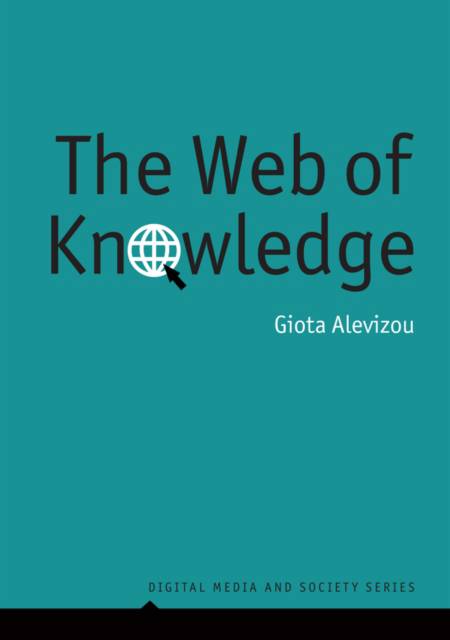
- Afhalen na 1 uur in een winkel met voorraad
- Gratis thuislevering in België vanaf € 30
- Ruim aanbod met 7 miljoen producten
- Afhalen na 1 uur in een winkel met voorraad
- Gratis thuislevering in België vanaf € 30
- Ruim aanbod met 7 miljoen producten
Omschrijving
This innovative book, which includes a foreword by the co-founder of Wikipedia, Jimmy Wales, traces the historical roots of digital encyclopedias in the early development of information science and cyberculture. It identifies trends within their digital evolution to reveal a complex web of relationships between media technology, knowledge and culture. Using several case studies, Alevizou analyses how major technological shifts have impacted publishing models, governance, and creative labour of reference works; the evolution of the genre and the modalities of representation and access; and the range of uses and symbolic meanings of encyclopedias as diverse nodes within broader information economies, as commodities and as public goods.
Filled with rich empirical insights, this engaging text reflects on how encyclopedias serve as informational media today and discusses their continued relevance in public communication and culture. The Web of Knowledge is essential reading for students and scholars of digital media, platform studies, and the political economy of knowledge.
Specificaties
Betrokkenen
- Auteur(s):
- Uitgeverij:
Inhoud
- Aantal bladzijden:
- 312
- Taal:
- Engels
- Reeks:
Eigenschappen
- Productcode (EAN):
- 9780745646299
- Verschijningsdatum:
- 28/04/2026
- Uitvoering:
- Paperback
- Formaat:
- Trade paperback (VS)
- Afmetingen:
- 149 mm x 210 mm
- Gewicht:
- 430 g

Alleen bij Standaard Boekhandel
Beoordelingen
We publiceren alleen reviews die voldoen aan de voorwaarden voor reviews. Bekijk onze voorwaarden voor reviews.








